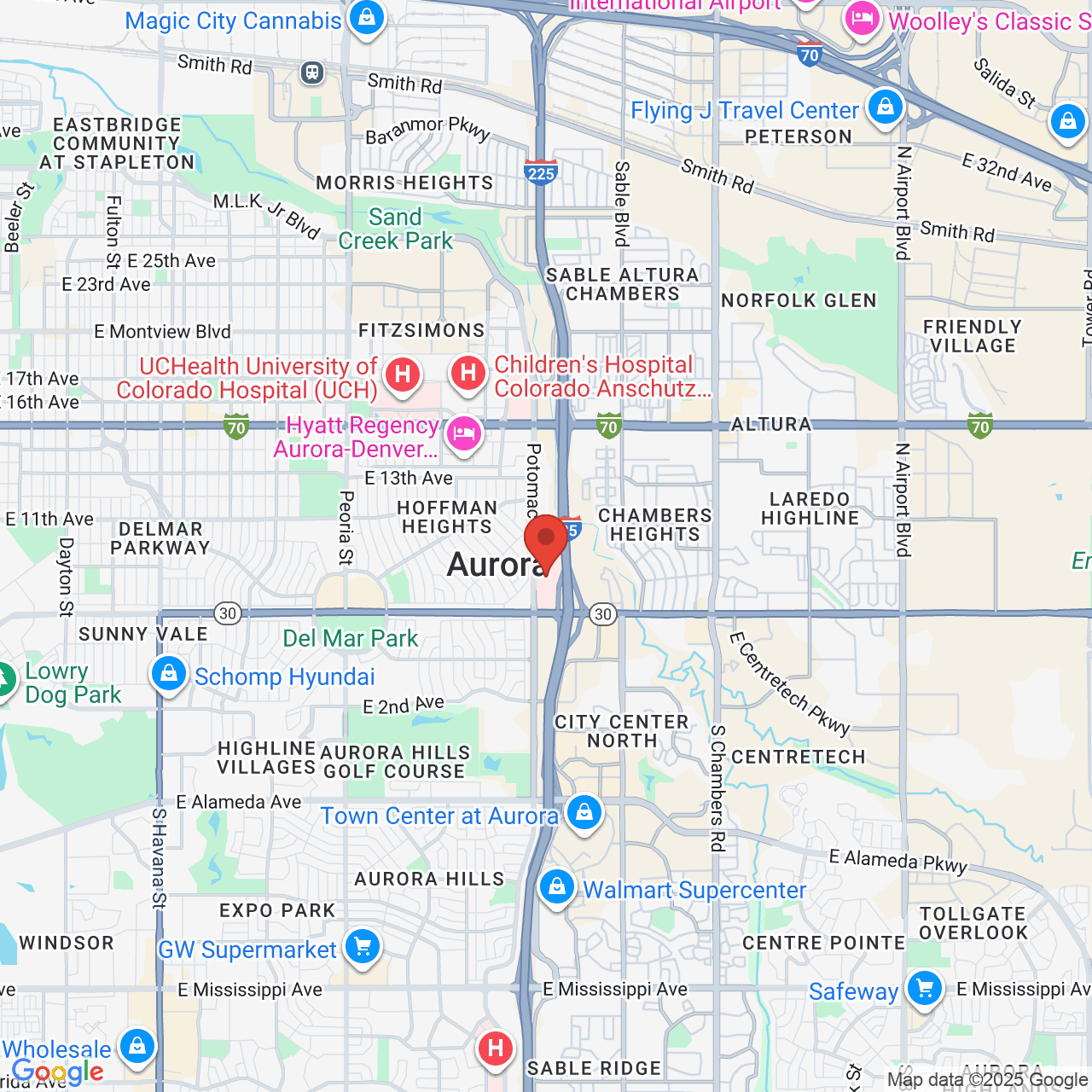Lazy Eye
Lazy Eye Treatment
Lazy eye, also known as amblyopia, is a vision development problem that normally occurs in infancy and early childhood. If you notice one of your child's eyes does not move in unison with the other, it is important that you schedule an exam with an eye doctor for them. Lazy eye can cause permanent vision loss in the affected eye. The experienced eye doctors at the Burcham Eyecare Center in Aurora, CO are very capable of caring for the vision of your child.

What Does it Mean to Have a Lazy Eye?
Amblyopia is a vision development problem that occurs in the brain, not in the eye itself. Signal issues from an eye causes the brain to ignore the information being sent from it. This lack of recognition from the brain causes the eye to weaken and appear "lazy". It usually only affects one eye, but occasionally, cases of both eyes being affected do appear.
It is important that during a child's development stage that strong nerve connections be made between the eyes and the brain. If the brain is ignoring information from one eye, those strong connections are not made. Lack of strong connections could lead to permanent vision loss in that eye.
Common Causes of Lazy Eye
There must be a good reason why the brain would ignore signals being sent to it from one of the eyes. One common cause is that the eyes are not aligned to look in the same direction. This is often referred to as being cross-eyed. The brain may start to ignore information being sent from one eye.
Another common cause of amblyopia is that one eye may have a severe focusing problem. The brain will favor the eye with a clearer vision and tune the other one out.
There could also be some type of obstruction in the eye that does not allow a proper amount of light to enter the eye. Congenital cataracts are one example of this.
Lazy Eye Treatment
Lazy eye treatment is highly effective, especially when the problem is caught early. If the cause of lazy eye is due to a focusing problem with one eye, then normal vision can be obtained with corrective lenses. The prescription of the lenses will make the focusing ability of both eyes the same. But however, the wearing of a patch over the unaffected eye for a period of time may be required to force the brain to pay attention to the information being sent from the amblyopic eye. This will help the brain to build strong nerve connections with that eye.
Tip: If your child objects to wearing a patch, try making a patch that is fun for them. For example, one that represents a favorite cartoon character of theirs or one that makes them a superhero.
Atropine eye drops may be an option instead of wearing a patch. These drops put in the "good" eye will make its vision blurry, forcing the brain to depend on the "lazy" eye.
Surgery may be necessary in cases where the eyes do not align with each other. After surgery, special eye exercises may be required to help the eyes work together as a team.
Computer programs today have been designed to help older children and adults who suffer from amblyopia. Several treatments from these programs help to stimulate neural changes that improve vision.
Call Burcham Eye Care Center Today!
If you notice a problem with your child's vision, then quickly schedule an eye doctor appointment. Early detection of lazy eye will give the best outcome for your child. Your baby should receive eye checkups as a part of its wellness visits, but it is recommended that you have your child's eyes checked before they start school. Our trained eye doctors at the Burcham Eye Care Center in Aurora, CO are happy to support your child's eye care. Set up an appointment with us today!


